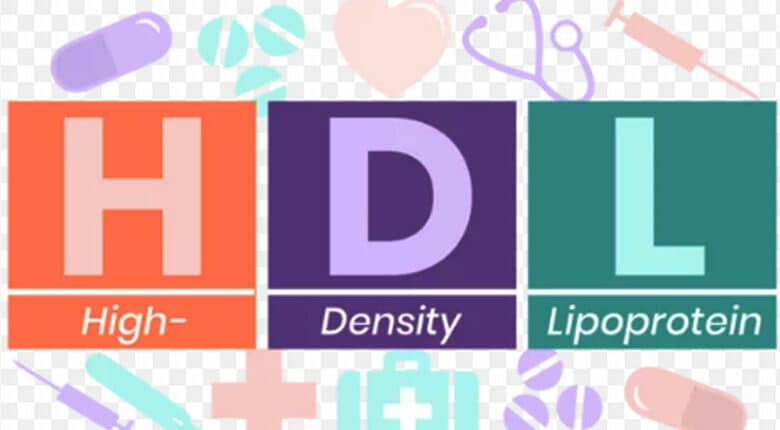Top Benefits of High Density Lipoprotein

In the realm of cardiovascular health, high-density lipoprotein (HDL) often takes the spotlight as the “good” cholesterol. This vital component of our lipid profile plays a significant role in maintaining overall well-being. In this article, we will delve into the top benefits of high-density lipoprotein and explore its impact on our health.
What is HDL?
High-density lipoprotein, or HDL, is a type of lipoprotein that carries cholesterol away from the arteries and towards the liver for processing and elimination. Often referred to as the “good” cholesterol, HDL helps to prevent the accumulation of plaque in the arteries, reducing the risk of heart disease.
How is HDL Different from LDL?
While HDL is known for its beneficial effects, low-density lipoprotein (LDL) is often considered the “bad” cholesterol. Unlike HDL, LDL transports cholesterol to the arteries, contributing to the buildup of plaque and potential blockages.
The Top Benefits of HDL
1. Cardiovascular Protection
HDL acts as a protective shield for your heart. By removing excess cholesterol from the bloodstream, it reduces the chances of arterial clogging, a leading cause of heart attacks and strokes.
2. Anti-Inflammatory Effects
HDL doesn’t just transport cholesterol; it also exhibits anti-inflammatory properties. It helps combat inflammation within the arteries, maintaining their flexibility and preventing damage that could lead to heart disease.
3. Enhanced Endothelial Function
The endothelium, the lining of blood vessels, plays a crucial role in maintaining vascular health. HDL promotes endothelial function, ensuring proper blood flow and reducing the risk of hypertension and other cardiovascular issues.
4. Cholesterol Regulation
HDL actively participates in the regulation of cholesterol levels. It aids in the elimination of excess cholesterol, which is essential for maintaining a healthy lipid profile.
5. Promotion of Reverse Cholesterol Transport
One of HDL’s standout features is its involvement in reverse cholesterol transport. It collects excess cholesterol from peripheral tissues and returns it to the liver for processing and excretion.
6. Antioxidant Abilities
HDL exhibits antioxidant properties, which help protect against oxidative stress and the damage caused by free radicals. This protective role extends to the cardiovascular system.
7. Diabetes Risk Reduction
Research suggests that high levels of HDL are associated with a decreased risk of type 2 diabetes. HDL may enhance insulin sensitivity and contribute to better blood sugar control.
8. Brain Health
The benefits of HDL extend beyond the heart. Studies propose that it could have a positive impact on brain health by reducing the risk of cognitive decline and neurodegenerative diseases.
The Importance of Maintaining Healthy HDL Levels
Various factors can influence your HDL levels, including genetics, diet, exercise, and lifestyle choices. Adopting a balanced diet rich in fruits, vegetables, whole grains, and healthy fats, combined with regular physical activity, can help maintain optimal HDL levels.
Conclusion
In conclusion, high-density lipoprotein (HDL) plays a pivotal role in safeguarding our cardiovascular health. Its multifaceted benefits, from cholesterol regulation to antioxidant properties, underscore the significance of having healthy HDL levels. By embracing a heart-healthy lifestyle, we can harness the advantages of HDL and take proactive steps towards maintaining our overall well-being.
FAQs
- Can I increase my HDL levels through exercise alone? Engaging in regular physical activity can certainly boost your HDL levels, but a balanced diet and overall healthy lifestyle are also essential.
- Are there any foods that specifically increase HDL levels? Foods rich in omega-3 fatty acids, like fatty fish and flaxseeds, as well as sources of monounsaturated fats, like olive oil and avocados, can help raise HDL levels.
- Is it possible to have too much HDL? While having higher HDL levels is generally beneficial, extremely high levels may not necessarily confer extra advantages and should be discussed with a healthcare professional.
- Can medication raise HDL levels effectively? Some medications, such as statins and niacin, may increase HDL levels. However, these should only be taken under the guidance of a healthcare provider.
- At what age should I start monitoring my HDL levels? It’s advisable to have your cholesterol levels checked regularly starting in your twenties, as preventive measures can be taken early to maintain heart health.




